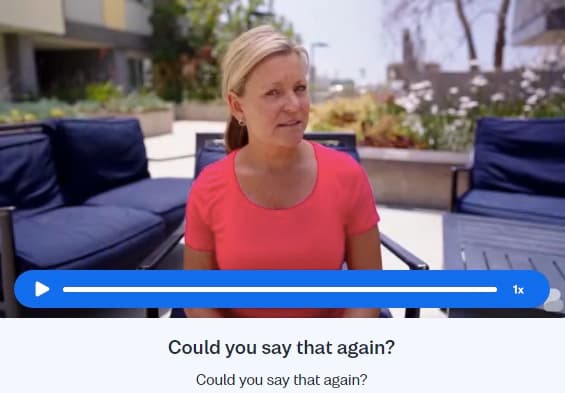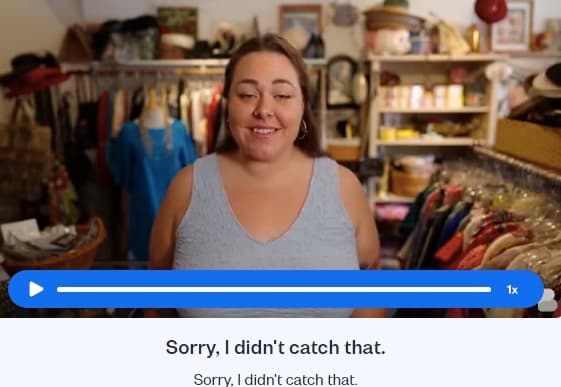I want to learn...
Author:

Barney Meekin
There are lots of suffixes in English for you to get your head around. Suffixes are letters added to the end of a word to change the word, its meaning, or how it's used in a sentence. They have all kinds of jobs from making a noun plural and changing a noun to a verb, to making a verb agree with its subject.
Usually, suffixes have a clear purpose. You know exactly what it does and when it does. But some suffixes are more flexible. One super flexible suffix is “-ish.”
In this article, you’ll learn all about “-ish,” what it means, and how you can use it in everyday conversation (even though it doesn't always make grammatical sense).
Feeling uncertain-ish about how to use ‘“-ish”?
We are here to answer all your questions! The suffix "-ish" is used to indicate a rough approximation or an approximation of a quality. It's often added to adjectives and nouns to imply "somewhat" or "approximately." Learn more via Busuu’s free online courses!
What does “-ish” mean?
“-ish” has many uses in everyday communication. Let’s take a look at how and why you can use it with some real-life examples of “-ish” in everyday conversation:
“-ish” as a cultural and nationality identifier
When we add some suffixes to nouns, they become adjectives. “-ish” is a great example of this (the others are -able, -al, -ful, -ic, -ive, -less, -ous, and -y).
Here’s one way “-ish” changes a noun into an adjective. You can use “-ish” to connect people to a nation or culture by adding it to the end of the word for the culture or nation (you have to change the word slightly). For example, we use “British” to talk about someone or something from Britain. Or “Swedish” to talk about someone or something from Sweden.
Example: “Britain” (noun) + “-ish” (suffix) = “British” (adjective)
Example dialogue:
Person 1: "I just tried this amazing Finnish recipe for salmon soup. It was delicious!"
Person 2: "Finnish cuisine, huh? I've never tried it. What do you like about it?"
Person 1: "Well, they use a lot of fresh, local ingredients in Finland. It’s so tasty."
“-ish” as a way to describe characteristics
You can add “-ish” to nouns to make adjectives that describe characteristics. For example, you could talk about a “childish” friend who acts like a child. Or a “foolish” family member who makes stupid decisions. You can even add “-ish” to “book” to describe a “bookish” person who is serious about reading and studying.
Example: “fool” (noun) + “-ish” (suffix) = “foolish” (adjective)
Example dialogue:
Person 1: "Have you noticed how bookish Kevin is lately? He's always studying and trying to talk to me about serious topics."
Person 2: "I know! I asked him for a movie recommendation, and he gave me a list of ten documentaries about ancient Rome."
Person 1: "Haha, if you asked him for the time, he'd give you a brief history of the clock."
“-ish” and time
“Ish” is a fantastic way to be approximate about time in casual situations (don’t use this at work — it won’t go down well with your boss). When making plans with your friends, you can say "Let's meet at six-ish.” Then everyone has a little more flexibility in their schedules.
Example: “ten” (time) + “-ish” (suffix) = “ten-ish” (approximate time)
Example dialogue:
Person 1: "Hey, what time are we meeting up tonight?"
Person 2: "Around 7-ish? Means we don’t need to rush."
Person 1: "7-ish? Knowing you, that means you’ll be there at 8"
Person 2: “Hey, I'm not that bad. See you at 7-ish.”
“-ish” and quantities and amounts
You can use “-ish” to be approximate or vague about quantities and amounts too. Let’s say you’re trying to guess how many people were in a crowd, you could say “two hundred-ish.” Or let’s say you’re cooking and can’t quite remember how much salt to add, you could say “a teaspoon-ish.” “-ish” is a big help when you don’t know (or don't need) exact numbers.
Example: “one hundred” (quantity/amount) + “-ish” (suffix) = “one hundred-ish” (approximate quantity/amount)
Example dialogue:
Person 1: "I'm trying to bake that cake recipe you gave me. How much sugar does it need?"
Person 2: "Oh, just use a cup-ish of sugar. I never measure it exactly."
Person 1: "A cup-ish? That's the most uncertain measurement I've ever heard! Can you not be more specific?"
Person 2: “I don’t remember. Just give it a taste and see if it’s enough.”
“-ish” and ages
Talking about age can be tricky — you don’t want to get too specific in case you offend someone (especially if you get their age wrong). Using “-ish” after an age is a great way to be more polite, and less direct when talking about age. For example, instead of describing your 54-year-old colleague as “my colleague is 54” try saying “my colleague is fiftyish.” It’s not a huge difference, but when talking about ages it’s a good idea to be careful.
Example: “thirty” (age) + “-ish” (suffix) = “thirtyish” (approximate age)
Example dialogue:
Person 1: "I was talking to Sarah about her brother. Do you know how old he is?"
Person 2: "I think he's in his late twenties, so maybe 28-ish?"
Person 1: "28-ish, huh? That makes sense. He used to be friends with my cousin and he’s around that age too."
“-ish” and adjectives
You can also add “-ish” to adjectives to mean “kind of.” For example, you could say “warmish” if the temperature was kind of warm, but not very. Maybe you expected it to be warmer — “warmish” could mean it’s cooler (but not cold) than you thought it would be. Or let’s say you meet a pro basketball player who isn’t as tall as you thought a pro basketball player should be. You can use “tallish” to describe him.
Example: “tall” (adjective) + “-ish” (suffix) = “tallish” (kind of [adjective])
Example dialogue:
Person 1: "I heard you met someone new. What's he like?"
Person 2: "He's great! Smart, funny, and tallish."
Person 1: "Tallish? So, like, not really tall but not short either?"
Person 2: “Exactly, he's just the right height where I don't have to look up or down too much.”
“-ish” on its own
Although it’s a suffix, in casual conversation there are times you can use “ish” on its own, like an independent word. For example, when you’re answering a question about one of the reasons above (being vague about age, time, numbers) you can sometimes reply just with “-ish.” Remember, this is only in casual conversation because grammatically this doesn’t make much sense. Whatever you do, don’t do this in professional or academic situations.
Example dialogue:
Person 1: "How old is your cousin? 30?"
Person 2: "Ish."
Person 1: "Ish? So, what, like 29, 31?"
Person 2: “Honestly, I can’t remember. She's somewhere in the 30-ish area.”
“-ish” with almost anything
“-ish” is so common that you can attach it to anything, and people will understand what you mean. It’s a fantastic way to be vague and indirect. For example, maybe you have a friend who plays the piano but they’re not very good. Instead of saying “they’re not good at music” you can say “it’s music-ish.” Does it make grammatical sense? No. Should you use it in formal situations? Again, no. But in casual conversation, people will understand what you mean.
Example dialogue 1:
Person 1: "What do you think of this painting? I can't decide if I like it."
Person 2: "It's... interesting-ish. I mean, it's not bad, but it's not amazing either."
Person 1: "Interesting-ish? Say what you really mean."
Person 2: “Well, it's like the artist wants it to be profound but it ends up being profound-ish.”
Person 1: “So basically, it's art, but art-ish?”
Example dialogue 2:
Person 1: "Hey, are you almost finished writing that report?"
Person 2: "Ish."
Person 1: "Ish? What does that mean? Are you close to finishing, or do you still have a lot to do?"
Person 2: “It's 'ish'. Somewhere in between. Not quite done, but not far off either.”
“-ish” - The flexible suffix
“-ish” is one of the most flexible and useful (in casual communication) suffixes in English. You can use it to connect people or things to culture and countries, to describe characteristics, to modify adjectives, and to be vague about time, age, and quantity. You can even use it on its own or with words that it shouldn’t — grammatically speaking — go with.
AUTHOR

Barney Meekin
Newlanguages


